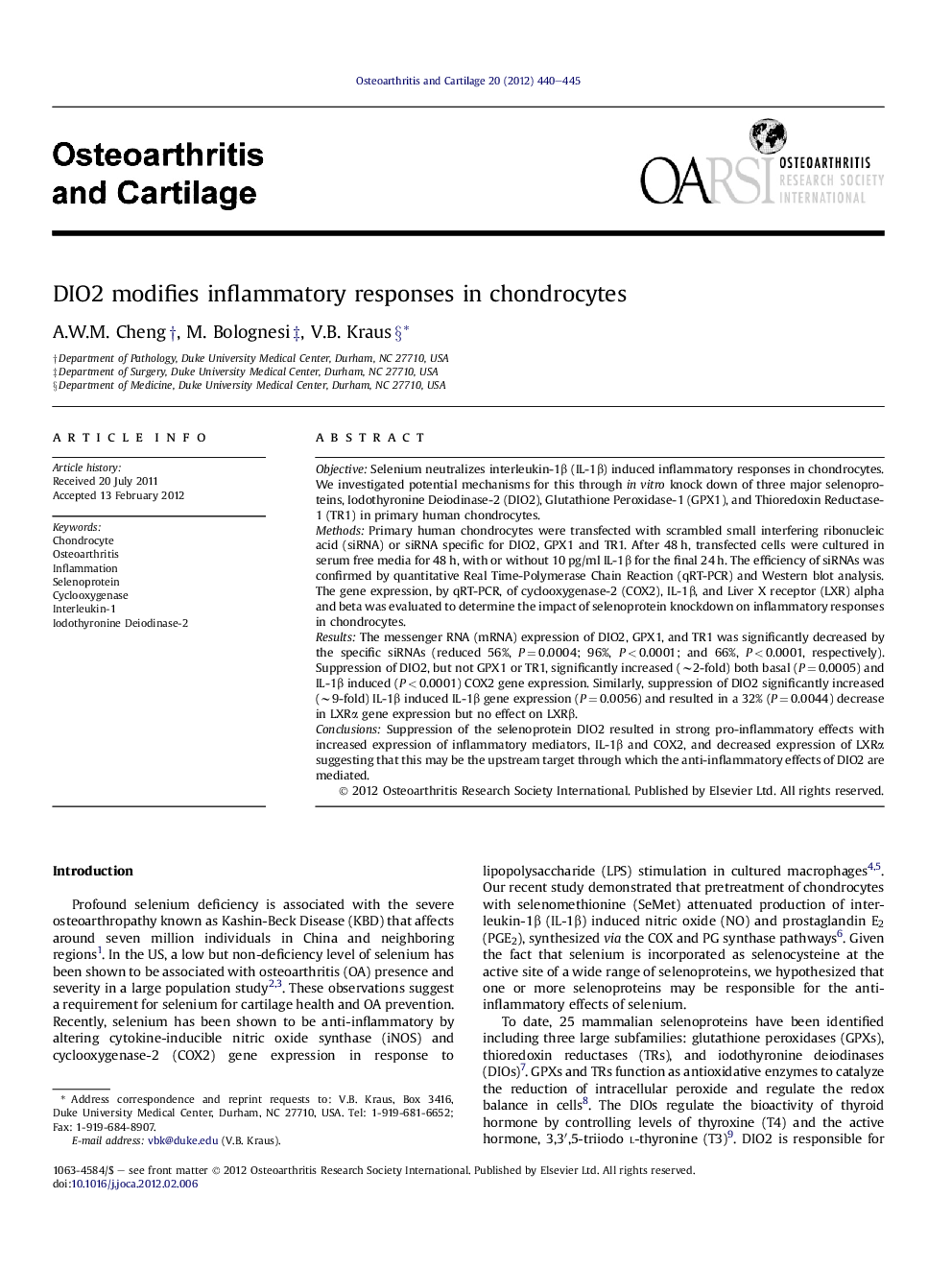| Article ID | Journal | Published Year | Pages | File Type |
|---|---|---|---|---|
| 3380000 | Osteoarthritis and Cartilage | 2012 | 6 Pages |
ObjectiveSelenium neutralizes interleukin-1β (IL-1β) induced inflammatory responses in chondrocytes. We investigated potential mechanisms for this through in vitro knock down of three major selenoproteins, Iodothyronine Deiodinase-2 (DIO2), Glutathione Peroxidase-1 (GPX1), and Thioredoxin Reductase-1 (TR1) in primary human chondrocytes.MethodsPrimary human chondrocytes were transfected with scrambled small interfering ribonucleic acid (siRNA) or siRNA specific for DIO2, GPX1 and TR1. After 48 h, transfected cells were cultured in serum free media for 48 h, with or without 10 pg/ml IL-1β for the final 24 h. The efficiency of siRNAs was confirmed by quantitative Real Time-Polymerase Chain Reaction (qRT-PCR) and Western blot analysis. The gene expression, by qRT-PCR, of cyclooxygenase-2 (COX2), IL-1β, and Liver X receptor (LXR) alpha and beta was evaluated to determine the impact of selenoprotein knockdown on inflammatory responses in chondrocytes.ResultsThe messenger RNA (mRNA) expression of DIO2, GPX1, and TR1 was significantly decreased by the specific siRNAs (reduced 56%, P = 0.0004; 96%, P < 0.0001; and 66%, P < 0.0001, respectively). Suppression of DIO2, but not GPX1 or TR1, significantly increased (∼2-fold) both basal (P = 0.0005) and IL-1β induced (P < 0.0001) COX2 gene expression. Similarly, suppression of DIO2 significantly increased (∼9-fold) IL-1β induced IL-1β gene expression (P = 0.0056) and resulted in a 32% (P = 0.0044) decrease in LXRα gene expression but no effect on LXRβ.ConclusionsSuppression of the selenoprotein DIO2 resulted in strong pro-inflammatory effects with increased expression of inflammatory mediators, IL-1β and COX2, and decreased expression of LXRα suggesting that this may be the upstream target through which the anti-inflammatory effects of DIO2 are mediated.
